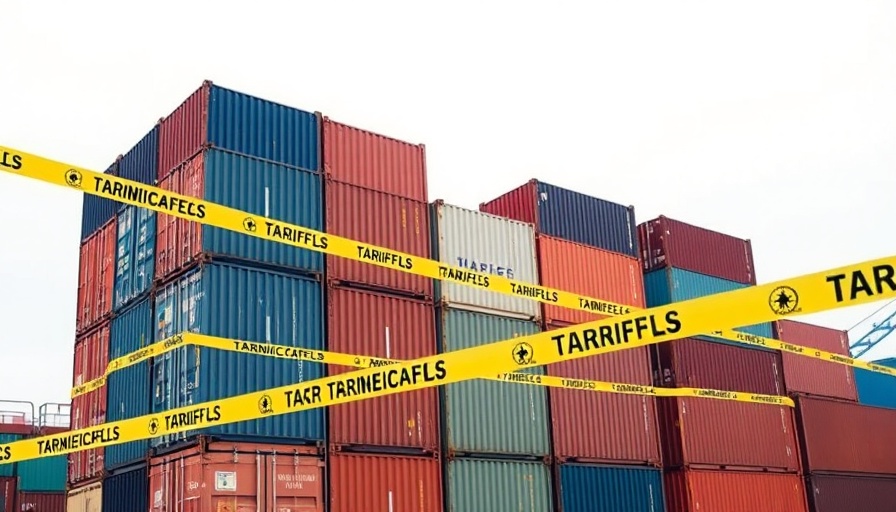
Shifting Sands: Is the U.S. Economy Heading for Contraction?
As U.S. economic indicators shift dramatically, concerns loom over the potential contraction of the economy in 2025. Recent reports suggest this could be the most significant market shift in decades, prompting urgent calls for both consumers and investors to reevaluate their positions. January saw consumer spending drop by the largest margin in four years, a signal that may point to deepening economic troubles. This contraction in consumer confidence—collapsing to its lowest point in February—could suggest that fear is beginning to dictate economic decisions. Combined with rising tariffs and federal layoffs, these factors may lead to a predicted 2.8% contraction in the economy by the Atlanta Federal Reserve.
Historical Context: Understanding Consumer Behavior
Consumer behavior plays a crucial role in economic health. As seen during previous financial crises, fear can lead to a spending freeze where consumers halt purchases, and businesses rein in investments. In the wake of economic fluctuations, such as the Great Recession, a similar pattern emerged. Fear-driven decisions led to significant contractions in consumer spending and investment, further deepening the economic downturn.
Market Predictions: Balancing Optimism and Pessimism
Experts continue to express a mix of optimism and caution. Some forecasts suggest growth could remain robust if the newly elected administration successfully implements policies that spur investment and consumer confidence. However, the anticipated tariffs and potential immigration policy shifts present a significant downside risk. Scenarios vary widely, with growth forecasts ranging from 1.5% to 3% in 2025, depending on the policy decisions made now. As the U.S. economy stands at a fork in the road, the outcomes depend largely on governmental responses and market reactions.
Consumer Confidence as a Key Economic Indicator
Marking a significant turn of events, consumer confidence has emerged as a key economic indicator reflecting the public's sentiment towards the economy’s health. Economic reviews highlight that an enthusiastic consumer can drive demand, enhancing economic growth. Conversely, waning confidence may hamper recovery efforts, leading to lower spending and stalling investment. The essential question remains: will rising fears culminate in economic contraction, or can confidence be restored through proactive measures?
What This Means for You
As consumers and investors brace for a potential contraction, understanding the implications of these economic shifts could prove pivotal. For everyday Americans, this could mean reassessing financial and investment strategies. In this climate, staying informed about economic trends and adopting a proactive approach to financial decisions could be the key to navigating the uncertain waters of 2025.
As we approach pivotal moments in economic policy, it’s crucial for readers to remain informed and prepared to act strategically, positioning themselves on the right side of this critical juncture.
 Add Row
Add Row  Add
Add 




Write A Comment